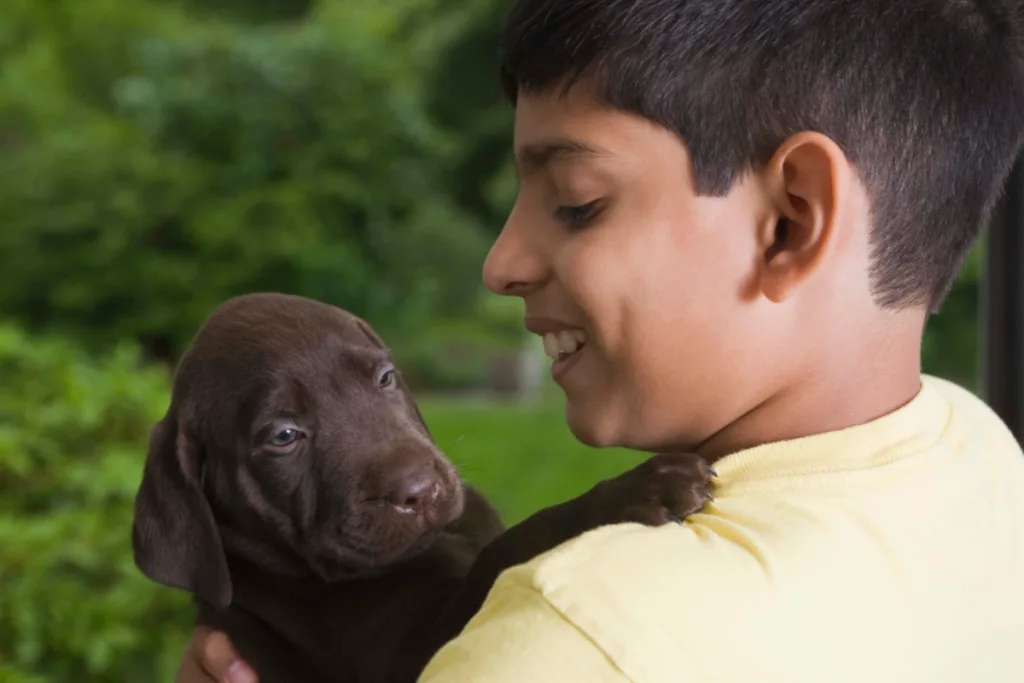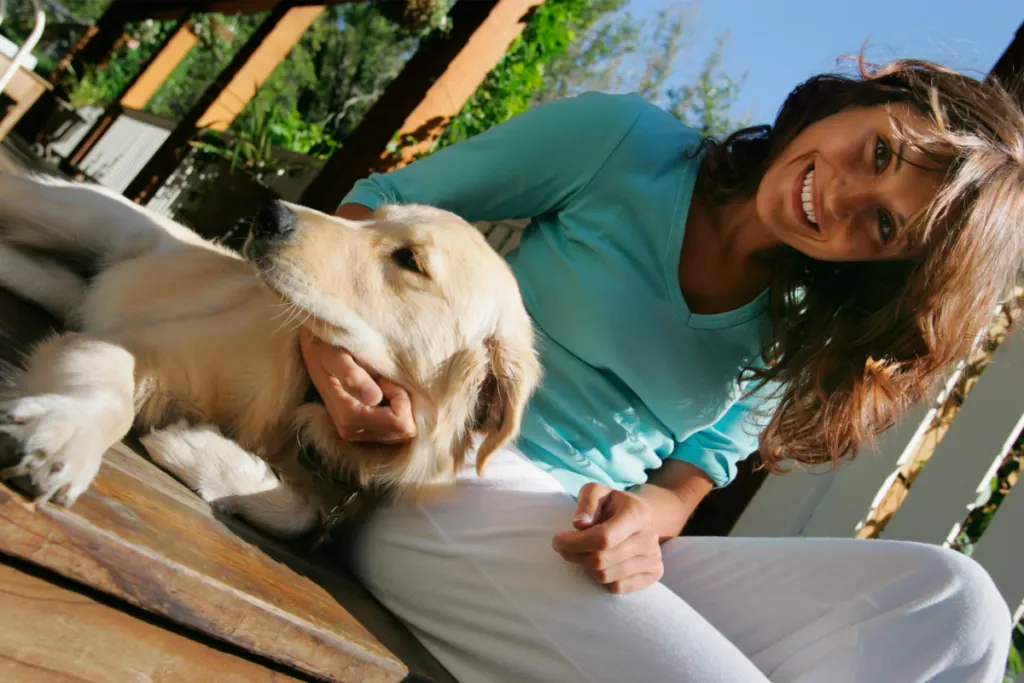Labrador Retrievers are renowned for their friendly and outgoing nature, making them one of the most beloved dog breeds around the world.
Their sociable disposition and eagerness to please make them excellent companions, but it’s essential to ensure they receive proper socialization from a young age.
Socialization plays a crucial role in shaping a Labrador’s behavior, helping them grow into well-adjusted, confident, and well-mannered pets.
In this article, we will explore a range of effective socialization techniques tailored specifically to Labrador Retrievers.

Whether you’re a new Labrador owner or looking to enhance your dog’s social skills, these strategies will help you foster a happy and harmonious relationship between you and your furry friend.
Click Here to Jump to a Section
Understanding the Importance of Socialization
Socialization is the cornerstone of a well-adjusted Labrador Retriever’s life.
It’s not merely a luxury but an absolute necessity.
This process helps your Labrador learn how to interact appropriately with people, other animals, and various situations.
When properly socialized, Labradors become confident, friendly, and less prone to fear or aggression.
They are better equipped to handle new experiences and environments, making them less likely to develop behavioral issues later in life.
Socialization isn’t just about ensuring your Labrador gets along with other dogs; it’s about preparing them for a harmonious coexistence in our human-centric world.
Puppyhood Socialization
Puppyhood is a critical phase in a Labrador’s life when socialization efforts yield the most significant results.
During the first few months, puppies are like sponges, soaking up experiences and impressions from the world around them.
It’s the ideal time to expose your Labrador puppy to a wide array of people, animals, places, and sounds.
Proper puppyhood socialization can set the foundation for a well-rounded, well-behaved adult Labrador.
However, it’s essential to strike a balance – introducing them to new experiences without overwhelming or traumatizing them.
Gradual, positive exposure during this stage is key to nurturing a confident and sociable Labrador.
Positive Exposure to People and Other Dogs
Positive interactions with people and other dogs are vital aspects of Labrador socialization.
By introducing your Labrador to various individuals and canine companions, you help them build trust and adapt to different personalities and energy levels.
Encouraging positive encounters teaches your Labrador how to read social cues, communicate effectively, and reduce the likelihood of fear-based aggression.
This socialization phase also fosters the development of essential social skills, enhancing your Labrador’s ability to interact gracefully in a variety of social settings.
Exposure to Various Environments

Exposing your Labrador to diverse environments is another crucial facet of their socialization journey.
Labrador Retrievers are adaptable dogs, but they need to become familiar with various settings to feel confident and secure.
Taking them to parks, cities, suburbs, and rural areas broadens their horizons and helps them become well-adjusted in any situation.
Exposure to different environments also helps prevent anxiety and fear-related behaviors, ensuring your Labrador remains relaxed and happy, whether you’re in a bustling urban center or a tranquil countryside retreat.
It’s all about building a well-rounded and adaptable companion who can thrive in our multifaceted world.
Training and Obedience
Incorporating training into your Labrador’s socialization efforts is essential for cultivating a well-behaved and well-mannered companion.
Basic obedience training not only enhances your Labrador’s overall behavior but also reinforces their social skills.
Training sessions provide an opportunity for positive interaction with you, strengthening the bond between you and your furry friend.
Through consistent training, you can teach your Labrador important commands, such as sit, stay, and recall, which are valuable in social situations and can ensure their safety and the safety of others.
Preventing Fear and Aggression
One of the primary goals of socialization is to prevent fear and aggression in Labrador Retrievers.
A well-socialized Labrador is less likely to react with fear or aggression when confronted with unfamiliar people, animals, or situations.
Early and positive exposure to a variety of stimuli helps your Labrador build confidence and trust, reducing the likelihood of aggressive behavior stemming from fear or insecurity.
Effective socialization strategies are a proactive approach to ensuring your Labrador remains a friendly and peaceful companion throughout their life.
Socialization Activities
Engaging in socialization activities can make the process more enjoyable for both you and your Labrador.
These activities provide opportunities for your dog to interact with others and explore new environments in a playful and positive manner.
Whether it’s attending dog-friendly events, joining a training class, or organizing playdates with other dogs, these activities not only contribute to socialization but also keep your Labrador mentally and physically stimulated, promoting overall well-being.
Adult Labrador Socialization

While puppyhood is the ideal time to start socialization, adult Labradors can also benefit from socialization efforts.
Whether you’ve adopted an adult Labrador or missed some opportunities during their puppyhood, it’s never too late to work on socialization.
Tailoring your approach to their specific needs and gradually exposing them to new experiences can help adult Labradors become more confident and sociable, even if they have missed out on early socialization opportunities.
This section will explore strategies for effectively socializing adult Labradors.
Troubleshooting Challenges
Despite your best efforts, you may encounter challenges during the socialization process.
Labrador Retrievers, like all dogs, have their unique personalities and may respond differently to various social situations.
This section addresses common hurdles such as fear, aggression, or shyness that you might face while socializing your Labrador.
It provides guidance on how to identify these issues, strategies to overcome them, and when it may be necessary to seek professional help from a dog trainer or behaviorist.
Maintaining a Lifelong Socialization Plan
Socialization is not a one-time task but an ongoing commitment throughout your Labrador’s life.
This final section emphasizes the importance of continually exposing your Labrador to new experiences, people, animals, and environments.
It explores ways to ensure that your Labrador remains socially well-adjusted and adaptable as they age.
A lifelong socialization plan is the key to maintaining a harmonious and enjoyable relationship with your
Labrador, allowing them to thrive in various circumstances and continue to bring joy to your life.
